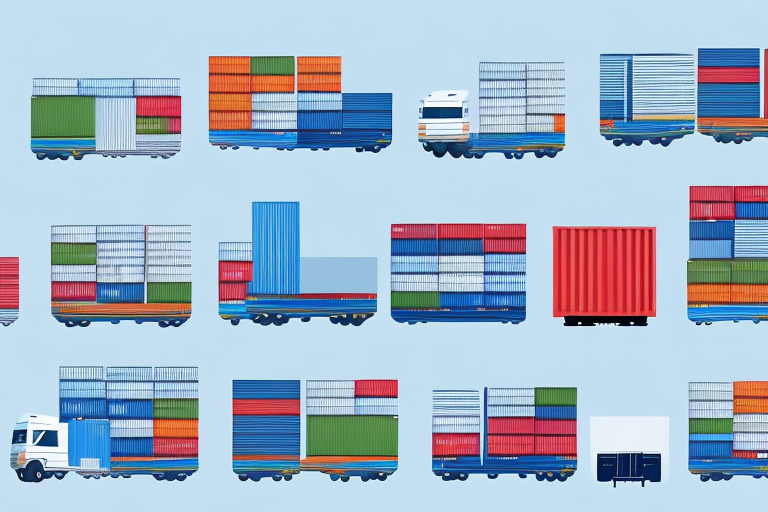The Evolution of the Logistics Industry
Logistics has transformed dramatically from its early beginnings in military supply chains to a cornerstone of global commerce. Initially focused on the transportation and storage of goods, modern logistics now encompasses a wide range of activities integral to efficient business operations.
Historical Development
The origins of logistics trace back to ancient civilizations, where empires like Rome built extensive infrastructure such as roads and aqueducts to support their armies. Over centuries, the scope of logistics expanded beyond military applications to include commercial trade, especially with the advent of the Industrial Revolution in the 19th century. Today, logistics integrates advanced technologies to manage complex global supply chains effectively.
Impact of E-commerce
The rise of e-commerce has revolutionized logistics, driving demand for rapid delivery and sophisticated fulfillment strategies. Companies have adapted by investing in automation, expanding fulfillment centers, and exploring innovative delivery methods like drones and autonomous vehicles. According to a Statista report, global e-commerce sales reached over $5 trillion in 2021, highlighting the sector's significant influence on logistics operations.
The Role of Technology in Modern Logistics
Emerging Technologies
Technological advancements such as the Internet of Things (IoT), Big Data Analytics, and Artificial Intelligence (AI) are revolutionizing the logistics landscape. IoT enables real-time tracking of goods, enhancing visibility across the supply chain. Big Data Analytics allows companies to predict demand patterns and optimize inventory management, while AI facilitates decision-making and improves operational efficiency.
Blockchain in Supply Chain
Blockchain technology offers a secure and transparent method for tracking transactions within the supply chain. By providing immutable records, blockchain reduces the risk of fraud and errors, ensuring the authenticity of products. Industry leaders like IBM and Maersk are implementing blockchain solutions to enhance supply chain transparency and efficiency.
Sustainability and Environmental Practices
Green Logistics
With growing environmental concerns, sustainable logistics practices have become paramount. Companies are adopting green logistics strategies such as optimizing transportation routes to reduce fuel consumption, utilizing electric vehicles, and implementing energy-efficient warehousing solutions. According to the International Civil Aviation Organization, sustainable logistics practices can significantly lower carbon emissions, contributing to global environmental goals.
Waste Reduction
Effective logistics management also focuses on minimizing waste through reverse logistics and efficient inventory management. Reverse logistics involves handling returns and recycling, which not only reduces waste but also recaptures value from returned products.
Key Players and Services in the Logistics Sector
Major Logistics Providers
The logistics industry comprises various stakeholders, including shippers, carriers, freight forwarders, and third-party logistics providers (3PLs). Companies like DHL, FedEx, and UPS dominate the sector, offering comprehensive logistics services that range from transportation and warehousing to specialized supply chain solutions.
Third-Party Logistics (3PL)
3PL providers play a crucial role by offering outsourced logistics services, allowing businesses to focus on their core competencies. Services typically include transportation management, warehousing, inventory control, and comprehensive supply chain solutions. Partnering with a reputable 3PL can enhance operational efficiency and scalability.
Future Trends and Challenges in Logistics
Automation and Robotics
The adoption of automation and robotics is set to transform logistics operations. Automated warehouses and the use of drones for delivery are becoming more common, reducing labor costs and increasing precision. According to a report by McKinsey & Company, automation could improve logistics productivity by up to 20% over the next decade.
Supply Chain Resilience
The COVID-19 pandemic underscored the importance of resilient supply chains. Logistics companies are now prioritizing supply chain visibility, risk management, and contingency planning to withstand disruptions. Building resilient supply chains involves diversifying suppliers, enhancing digital infrastructure, and fostering agile operational strategies.
Regulatory and Compliance Challenges
Global logistics operations must navigate complex regulatory environments, including trade agreements, customs regulations, and environmental standards. Staying compliant requires continuous monitoring of regulatory changes and adapting logistics strategies accordingly.
Globalization and Its Impact on Logistics
Expansion of International Trade
Globalization has significantly expanded international trade, increasing the demand for efficient logistics services. Logistics companies must manage cross-border regulations, diverse market demands, and varying cultural practices to facilitate smooth international operations.
Infrastructure Development
Successful global logistics operations depend on robust infrastructure, including transportation networks, ports, and communication systems. Investments in infrastructure development are critical to support the growing volume of international trade and ensure the seamless movement of goods across borders.
Career Opportunities in the Logistics Industry
Diverse Roles
The logistics industry offers a wide range of career opportunities, including logistics management, transportation planning, inventory control, and supply chain analysis. Roles vary from operational positions to strategic roles that involve planning and optimizing supply chains.
Skill Development and Education
Successful careers in logistics require a combination of technical skills and soft skills. Proficiency in supply chain management software, data analysis, and understanding of global trade practices are essential. Additionally, strong communication and problem-solving abilities are highly valued.
Continuous education and obtaining relevant certifications, such as the Certified Supply Chain Professional (CSCP) or Certified in Logistics, Transportation and Distribution (CLTD), can enhance career prospects and opportunities for advancement within the logistics sector.
Collaborative Efforts for Enhanced Efficiency
Partnerships and Alliances
Collaboration among various stakeholders in the logistics industry, including shippers, carriers, and 3PLs, is vital for achieving operational efficiency and cost-effectiveness. Strategic partnerships can lead to resource sharing, technological integration, and streamlined processes, ultimately enhancing the overall performance of the supply chain.
Information Sharing
Sharing information and leveraging shared data platforms can improve transparency and decision-making across the supply chain. Implementing integrated information systems facilitates real-time tracking, demand forecasting, and coordinated responses to supply chain disruptions.
Conclusion
The logistics industry is a dynamic and evolving field that plays a critical role in global commerce. Embracing technological advancements, sustainable practices, and collaborative strategies are essential for businesses to remain competitive. As globalization continues to shape the logistics landscape, companies must adapt to emerging trends and overcome challenges to ensure efficient and resilient supply chains. With the increasing importance of logistics in modern business operations, there are ample opportunities for growth and innovation within the industry.



















